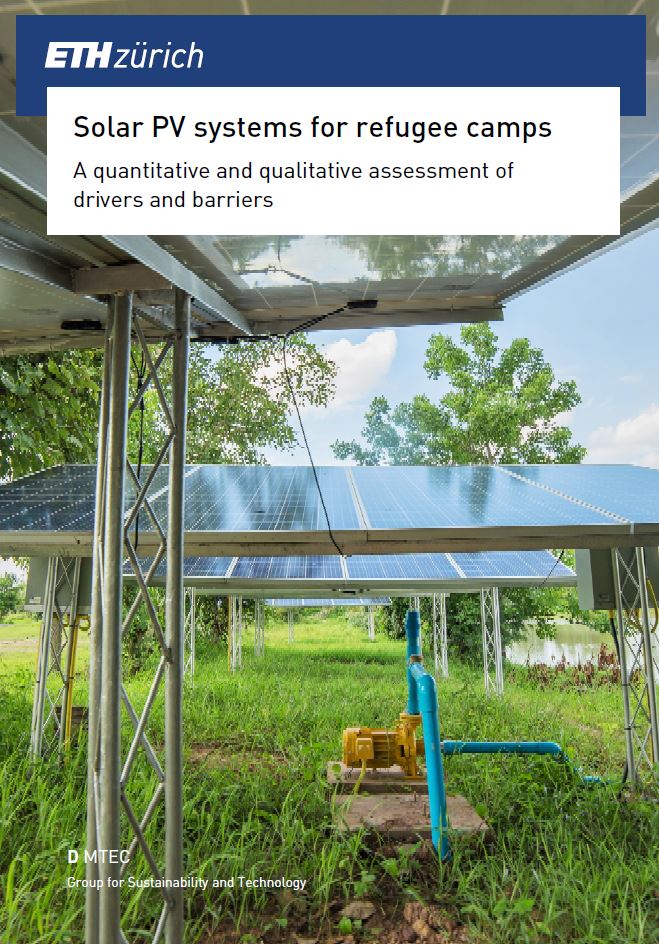Leveraging the potential of solar PV for refugees and host communities - report released
In a new report, SusTec researchers shed light on the drivers and barriers of solar PV in three settlements managed by the UN refugee agency. Focusing on the case of water pumping, they find that solar PV systems may provide a viable alternative to conventional forms of electricity supply. However, to leverage the potential of solar PV, several technical, institutional, financial, and social aspects need to be taken into account.

Based on a techno-economic model, the first part of the study assesses the levelized cost of electricity (LCOE) of solar PV systems in three selected refugee camps managed by external page UNHCR: Mafraq Zaatari in Jordan; Harran Kokenli in Turkey; and Dadaab in Kenya.
The authors find that kW-scale solar PV can be regarded an economically attractive alternative to conventional forms of electricity supply such as diesel generators, especially when powering water pumping and purification systems. Thereby, PV systems may achieve significant cost and emission savings, even for relatively short investment time periods.
Based on interviews with 10 experts on energy in the humanitarian sector, the authors suggest five action items that require further attention to leverage the potential of PV technology for refugee populations and host communities, and its contribution in context of the UN’s sustainable development goals.
- Introduce energy demand and supply accounting
- Build up institutional capacity on clean energy and solar PV in humanitarian organizations and bring expertise to the field
- Develop viable PV financing and repayment schemes
- Develop PV system designs that address the needs of refugee camps
- Spur diffusion of complementary technologies to leverage network and spillover effects, build entrepreneurial activity, and empower refugees and host communities
The report can be downloaded Download here (PDF, 3.3 MB)